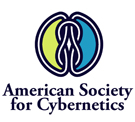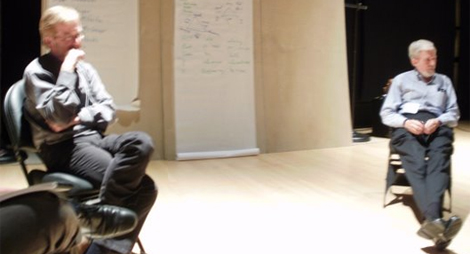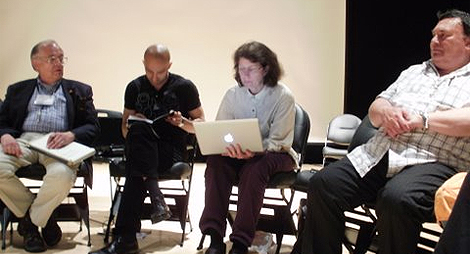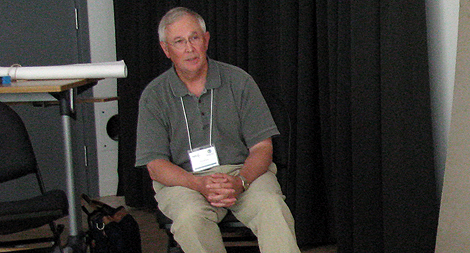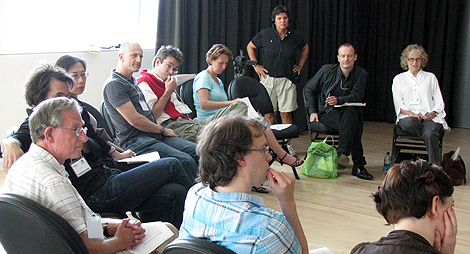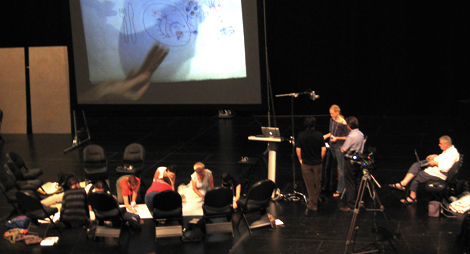Workshops
On the afternoon of the second day of the ASC meeting, members of the Society offered three parallel workshops to introduce interested conference participants to cybernetic ideas. The workshops were conducted by A) Stuart Umpleby and Albert Mueller, B) Larry Richards and C) Christiane Herr, Ranulph Glanville and Thomas Fischer.
Tutorial A conducted by Albert Müller and Stuart Umpleby began with a presentation by Albert Mueller of a paper which he had recently written with Karl Mueller on the origins of second order cybernetics. This was a very thorough and insightful description of a very important event in the history of science. Stuart Umpleby then described some of the other research activities occurring in and around the Biological Computer Laboratory (BCL) at the University of Illinois during this time. He described the work that he had done on computer-based communication media using the PLATO (Programmed Logic for Automated Teaching Operations) system in the Computer-based Education Research Laboratory. Ideas from cybernetics were used to guide an understanding of the anticipated implications of a new communications medium (now called the internet) for society.
Umpleby then described some of the research activities in American cybernetics after the 1974 book Cybernetics of Cybernetics and the closing of BCL in 1975. In the late 1970s people formerly connected with BCL engaged in electronic discussions via the electronic information exchange system based at New Jersey Institute of Technology. This work was supported by the National Science Foundation. In the 1980s there was a series of discussions between US and Soviet scientists on the foundations of cybernetics and general systems theory. The meetings were supported by the American Council of Learned Societies and the Soviet Academy of Sciences. In the 1990s work on second order cybernetics or biological cybernetics was supplemented by interest in social cybernetics. In recent years there has been work on reflexivity theory and science 2, an effort to expand the philosophy of science by adding a dimension – amount of attention paid to the observer. These two presentations were followed by about an hour of discussion and replies to questions.
Workshop B, facilitated by larry Richards, was a 2 hour and 40 minute conversation (without a break), among 14 participants, that ranged across topics from control to autonomy to language to conversation itself. With the generous cooperation of the participants, the idea that cybernetics is enacted in conversation was demonstrated. The political significance of the shift from 1st to 2nd order showed itself as the conversation unfolded.
Participants of workshop C began with a conversational sketching exercise from which a narrative developed that connected early simple feedback and control mechanisms such as light switches and thermostats to creative innovation. This included the introduction of cybernetic notions such as circularity, requisite variety and (self)observation.

